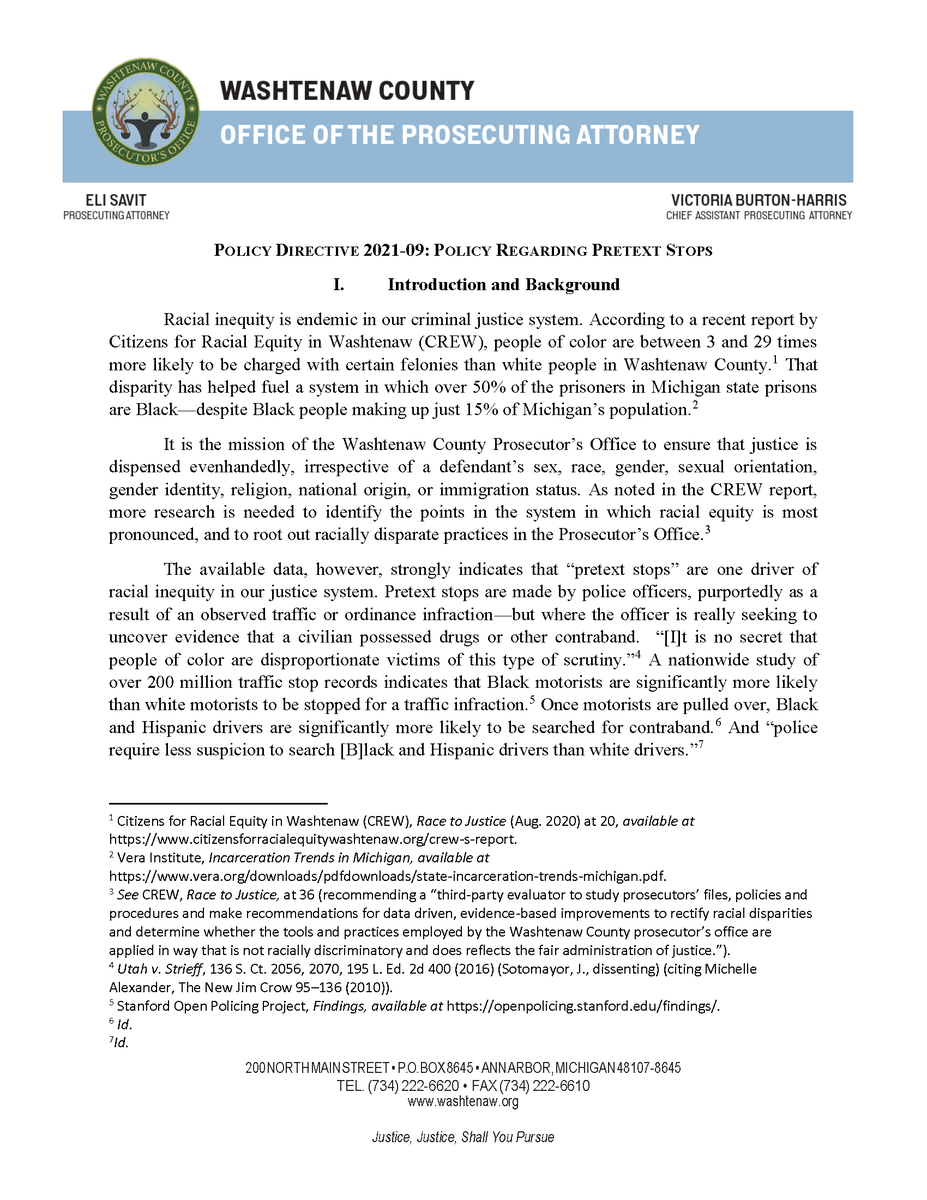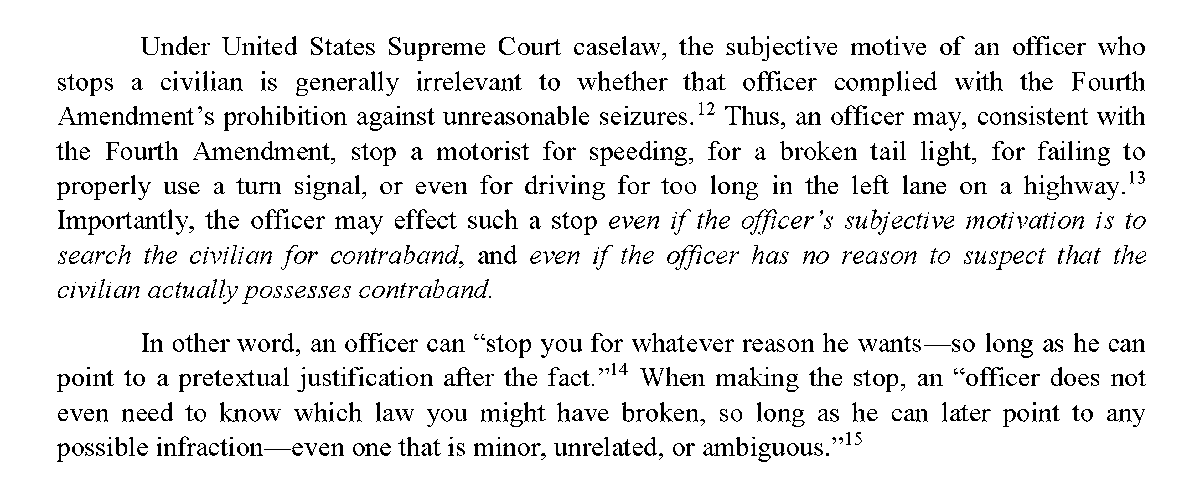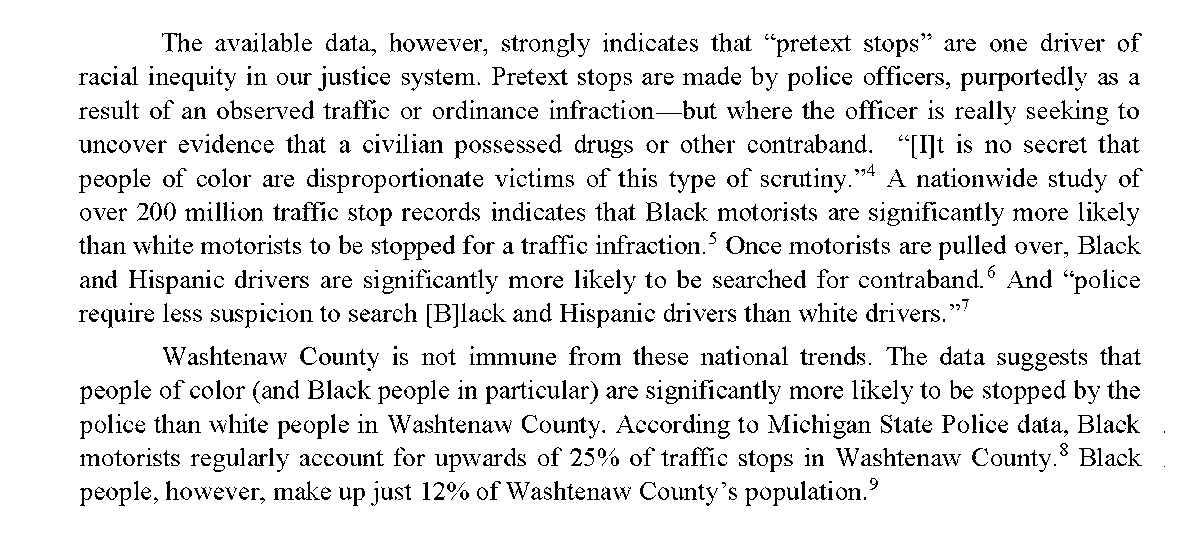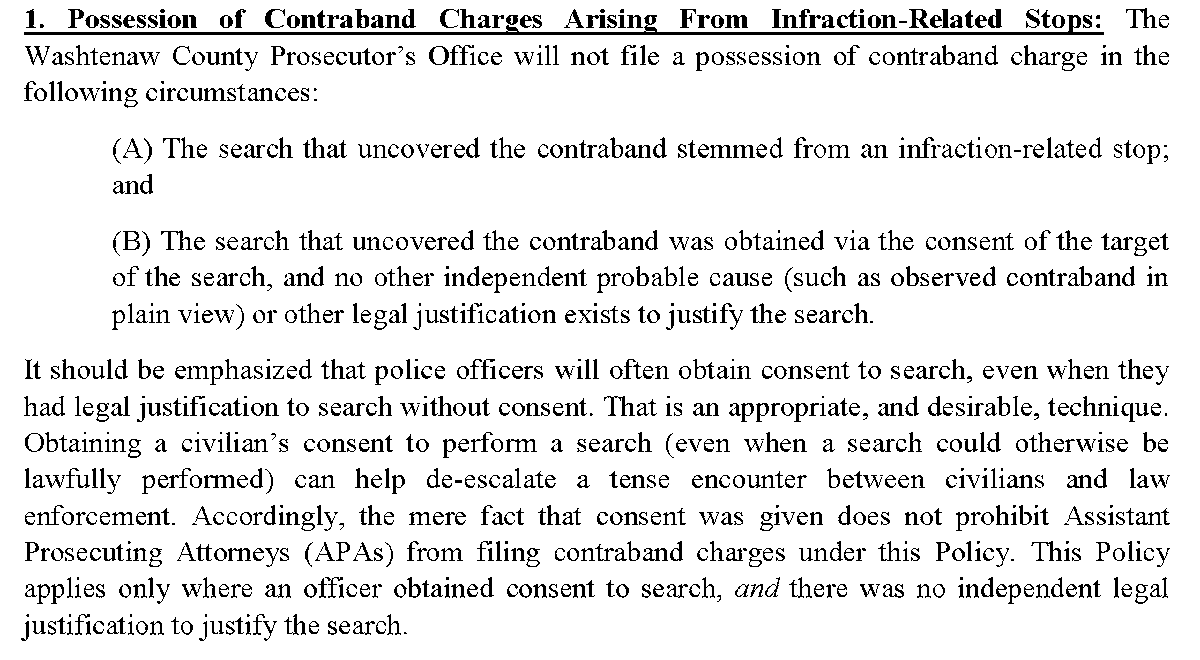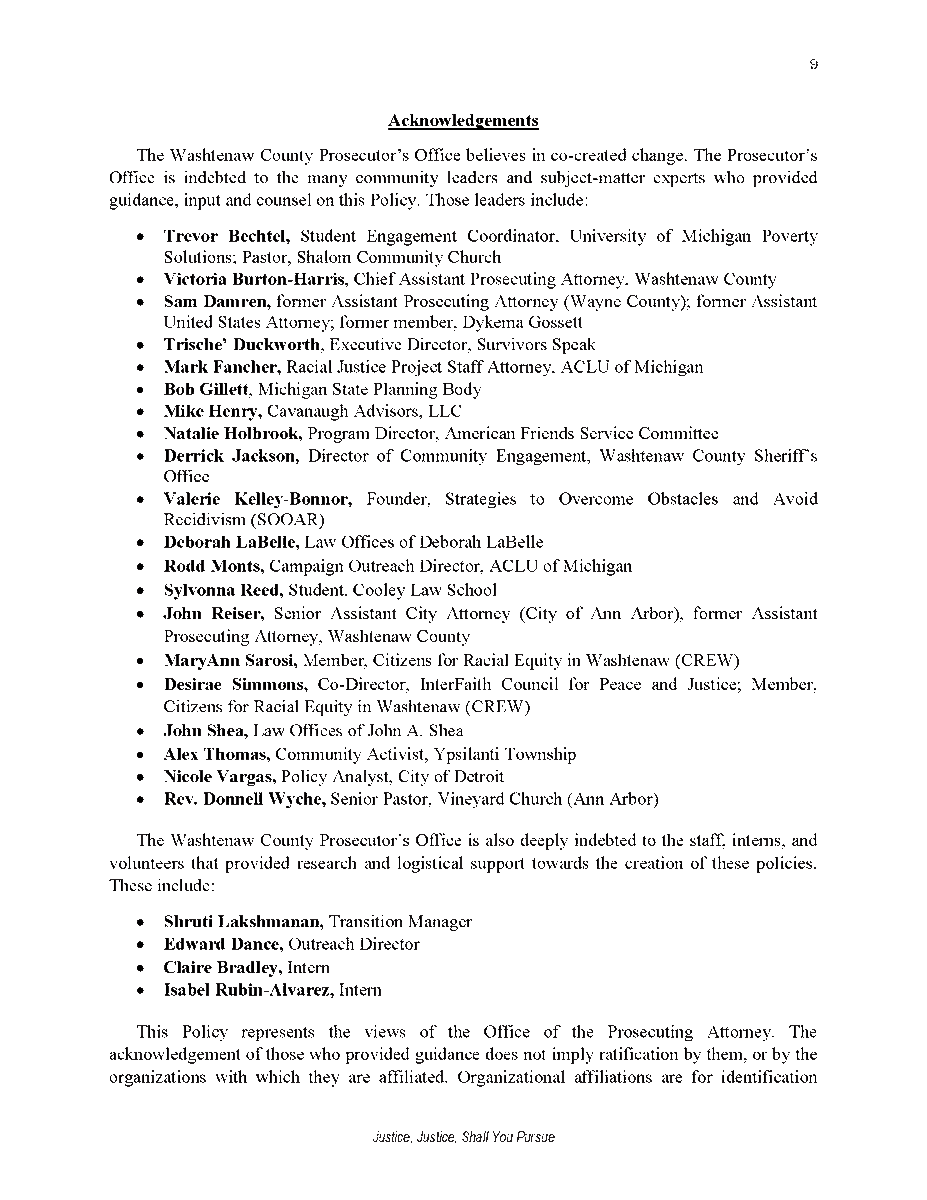Today, as we celebrate the legacy of Dr. King, our office is announcing a major new policy geared towards combatting racial profiling.
You can read the full policy here: https://www.washtenaw.org/DocumentCenter/View/19235/Pretext-Stops-Policy. /1
You can read the full policy here: https://www.washtenaw.org/DocumentCenter/View/19235/Pretext-Stops-Policy. /1
At the outset, some background as to just how racial profiling operates.
Under SCOTUS precedent, a police officer can pull you over for *any* reason (even the most minor traffic stop) even if what they really want to do is fish around to see if you have, e.g., drugs. /2
Under SCOTUS precedent, a police officer can pull you over for *any* reason (even the most minor traffic stop) even if what they really want to do is fish around to see if you have, e.g., drugs. /2
Importantly, officers can pull you over even if they have no *actual* reason to believe that you have drugs or other contraband.
So long as police can later point to some infraction (even an exceedingly minor one), the stop is OK. /3
So long as police can later point to some infraction (even an exceedingly minor one), the stop is OK. /3
And once you’re pulled over, police can use that stop to obtain “consent” to search you and your car.
Again: they can do this even if they have no reason whatsoever to think that you committed a crime.
If you give "consent" to have an officer search, they can search. /4
Again: they can do this even if they have no reason whatsoever to think that you committed a crime.
If you give "consent" to have an officer search, they can search. /4
And this is where you get “Driving While Black.”
Data—both nationally and locally—has shown that Black motorists, and motorists of color, are disproportionately likely to be pulled over. They’re also disproportionately likely to be searched once they are pulled over. /5
Data—both nationally and locally—has shown that Black motorists, and motorists of color, are disproportionately likely to be pulled over. They’re also disproportionately likely to be searched once they are pulled over. /5
This state of affairs isn't harmless. The humiliation & degradation that comes from having an officer seek to search, following a traffic violation, is pronounced.
That leads to broader distrust of law enforcement.
I can’t say it better than Justice Sotomayor (see image). /6
That leads to broader distrust of law enforcement.
I can’t say it better than Justice Sotomayor (see image). /6
So today, we’re announcing that we’ll no longer be authorizing possession-of-contraband charges (i.e., drug possession, possession of stolen property, certain minor weapons possession) that stem from incidents like those described—which strongly sound in racial profiling. /7
Specifically: we won’t authorize “contraband” charges if an officer pulls someone over for a minor traffic violation, then (without any legally justifiable suspicion another crime has actually occurred) obtains consent to search that person or their vehicle. /8
To be clear, this policy *does not* prohibit the filing of charges if an officer conducts a stop in order to investigate a crime.
It *does not* prohibit the filing of charges if an officer has independent probable cause to search a person or their vehicle. /9
It *does not* prohibit the filing of charges if an officer has independent probable cause to search a person or their vehicle. /9
It also doesn’t cover crimes against persons or property—like murder, sexual assault, etc.
This is an exercise of discretion, and we can’t look the other way in bringing to justice those who harm our community.
(Read our full policy for a list of illustrative examples). /10
This is an exercise of discretion, and we can’t look the other way in bringing to justice those who harm our community.
(Read our full policy for a list of illustrative examples). /10
But today, we’re sending a clear message: We’re not interested in contraband charges that resulted from “fishing expeditions” by police—which, data shows, are often perpetuated against people of color.
The harm that racial profiling causes is too real. /11
The harm that racial profiling causes is too real. /11
How do we know that we can do this while protecting public safety? We’ve looked to other places. In New Mexico and Washington, for example, an officer can’t stop a person for pretextual reasons.
There’s no indication those states suffer from higher crime rates as a result. /12
There’s no indication those states suffer from higher crime rates as a result. /12
I’ll note, too, that we’ve spoken to local law enforcement leaders, who have already been working to disincentivize their officers from engaging in racial profiling/pretext stops.
That’s a very good thing. Today, we’re doing our part. /13
That’s a very good thing. Today, we’re doing our part. /13
In the final analysis, we want folks in our community—whatever their race—to breathe easy. We want folks to know that if they’re subject to a traffic stop, it’s not part of a “fishing expedition” to seek more.
That should ease tension between civilians & law enforcement. /14
That should ease tension between civilians & law enforcement. /14
As always, of course, we didn’t do this alone.
I’m grateful to our many working group members—representing community activists, law enforcement, civil liberties lawyers, faith leaders, & more—who provided guidance & feedback on this policy. /15
I’m grateful to our many working group members—representing community activists, law enforcement, civil liberties lawyers, faith leaders, & more—who provided guidance & feedback on this policy. /15
I’ll end by highlighting the quote from our press release by our incredible Chief Assistant Prosecutor, @VBH4Justice.
"We are all in this together. None of us is free until we are all free."
Happy MLK Day. Let's continue working together to fight injustice everywhere.
/fin
"We are all in this together. None of us is free until we are all free."
Happy MLK Day. Let's continue working together to fight injustice everywhere.
/fin

 Read on Twitter
Read on Twitter